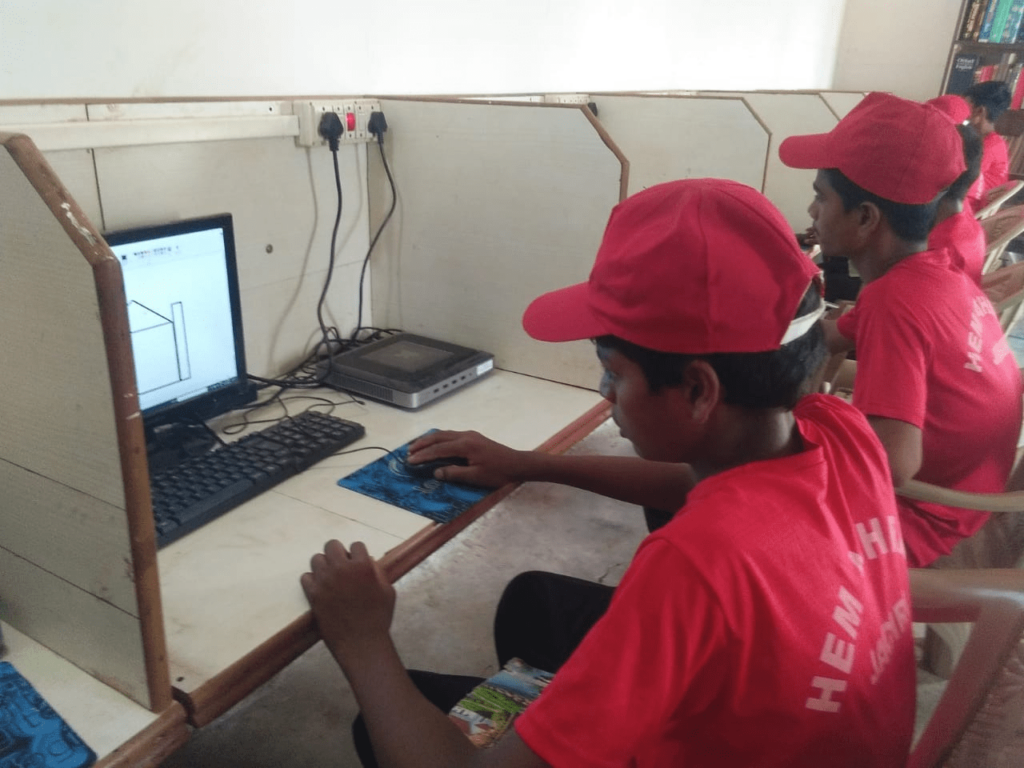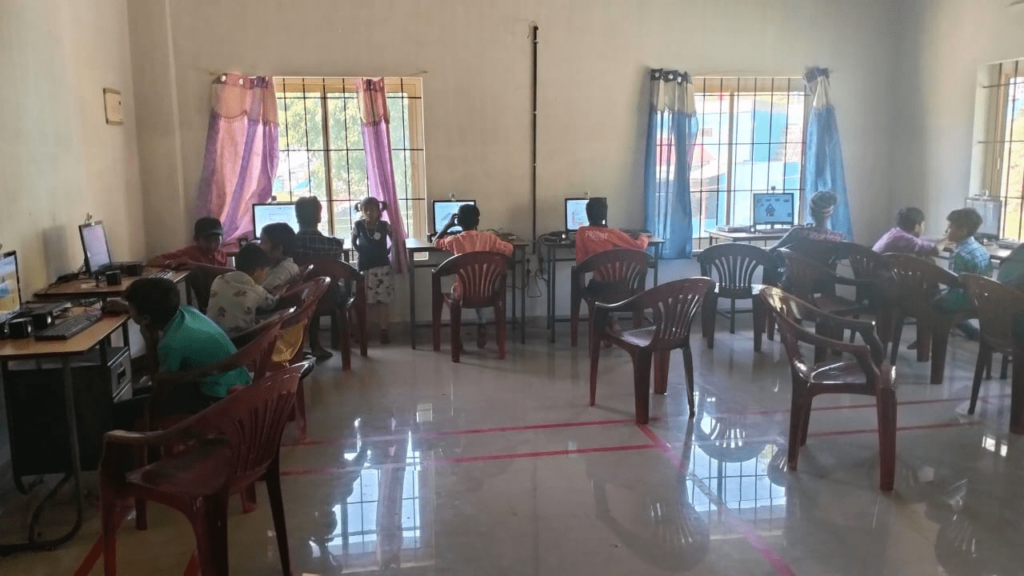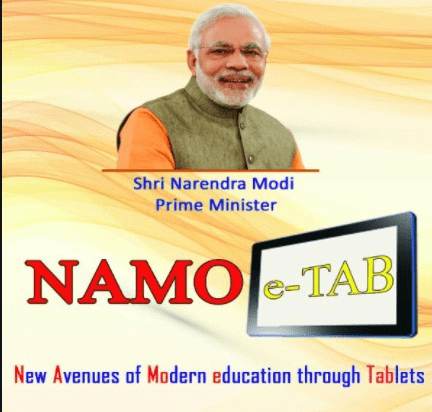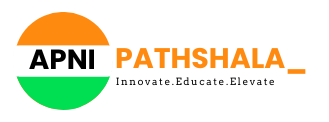What does it cost to educate a child in India?
The moment you find out you are going to be a parent, your whole world changes. You suddenly become responsible for another life, and with that responsibility comes a whole host of financial considerations. In a country like India, where the cost of living is already high, the cost of educating a child can be a daunting prospect for many parents. According to a report by the National Sample Survey Organization (NSSO), the average monthly expenditure on a child’s education is around INR 2,480, which amounts to roughly INR 29,760 per year. For low-income parents, who see education as a path out of the poverty trap for their children, this cost of education can be a significant burden. Private schools which claim to provide high-quality education cost an arm and a leg, are becoming more expensive every year. Government schools are free, but the teaching is often of poor quality . This is why parents face the additional expense of sending their kids to tuition classes to supplement their child’s education. This is where ApniPathshala comes in! Our learning pods are small groups of children who learn together in a safe and friendly community setting under adult supervision . Parents can either create their own learning pod with friends and family or join an existing pod. In our learning pods, the children learn together under adult supervision. The benefits of our learning pods are numerous. Firstly, they can significantly reduce the cost of education. By pooling resources with other parents, you can split the cost, making quality education more affordable for everyone. Additionally, because learning pods are typically held in the community itself , there are no overhead costs associated with commuting . Furthermore, our learning pods can provide a more personalized and tailored education for your child. Because the children are working together in small groups, they can learn and teach from each other. They have access to the world’s best learning courses through the PCs we provide, and this allows them to follow their own interests and curiosity, which means learning is fun and sticky. Another advantage of our learning pods is they provide a sense of community and socialization for children. At ApniPathshala, children learn and grow together, forming lasting friendships and building social skills that can serve them well in the future. Overall, the cost of raising a child in India can be a significant burden for many families. But with ApniPathsala, there is hope that this burden can be eased. By pooling resources and creating a personalized and affordable education option, our learning pods offer a solution that benefits both parents and children. If you are a parent struggling with the cost of education in India, consider exploring the option of community-based learning pods and see how they can benefit your family.
Why do Parents love ApniPathshala?
As a parent, you want the best education for your child. You want them to learn in a safe, supportive environment that nurtures their unique talents and abilities. Unfortunately, traditional schools don’t always offer the kind of personalized attention that many children need to thrive. That’s where ApniPathshala comes in! Here are some of the reasons why parents love ApniPathshala. In a traditional classroom, it’s easy for students to get lost in the crowd. Teachers have to divide their attention between dozens of students, and it’s difficult to give each child the individualized attention they need to succeed. ApniPathshala, on the other hand, is designed to be small and intimate. With just a handful of students, the pod leader can give each child the attention they need to excel academically. ApniPathshala offers a level of flexibility that traditional schools simply can’t match. The pod manager can work with the parents to create a schedule that works for everyone. For example, they might meet for a few hours in the morning, allowing parents to work in the afternoon. Or they might meet a few days a week, leaving plenty of time for extracurricular activities and family time. One of the biggest benefits of ApniPathshala is the ability to create a personalized curriculum that meets the needs of each individual student. The pod manager can create a curriculum that focuses on an individual child’s strengths and interests, and is tailored to the needs of the community. This bottom-up approach can be especially beneficial for students who struggle in traditional classrooms, or who have learning differences that require a different approach. ApniPathshala offers a sense of community that’s often missing in traditional schools. Since the pod manager lives and works in the community, he is much more answerable and accessible as compared to impersonal school teachers , and uncaring commercial coaching classes. Students have the opportunity to develop strong relationships with their friends,creating a supportive environment that fosters learning and growth. Safety and security are top priorities for parents, and our learning pods offer a level of control over who their children are interacting with on a daily basis. The pods are in the community, which is why they are small, safe, and secure. They are run by trusted community members, and kids don’t need to waste time and money on commuting. This can help alleviate concerns about bullying, violence, and other safety issues that can arise in traditional schools. ApniPathshala is a very cost-effective alternative to commercial coaching classes, whose primary motive is to make tons of money by cramming as many students as possible in a classroom. These still use the old-fashioned lecture method to teach, which is now outdated and obsolete. Since the pod uses PCs to help students learn for themselves, it’s a very cost-effective way of bridging the digital divide. We make high-quality education accessible to low-income families who might not be able to afford a PC on their own. In conclusion, ApniPathshala offers a range of benefits for parents who want a personalized, flexible, and supportive education for their children. From personalized attention and curriculum to a sense of community and improved focus, learning pods offer a compelling alternative to expensive overcrowded tuition classes.
Why do children love ApniPathshala?
The concept of learning pods has become increasingly popular, as a better alternative to crowded commercial coaching classes. ApniPathshala offers learning pods that complement traditional classroom instruction and have gained widespread popularity among parents and children. Here is why children love them ! One of the primary reasons why children love ApniPathshala is the personalized attention they receive. In a traditional classroom setting, it can be difficult for teachers to give individualized attention to each student. With our learning pods, which are much smaller ( about 5-15 kids) however, children are able to receive more focused and individualized instruction, which can help them better understand and engage with the material. This individualized attention can also help children build stronger relationships with their parents and peers. Because our learning pods typically consist of a small group of students, children are able to interact more closely with their classmates and form deeper connections. Another reason why children love ApniPathshala is the flexibility they offer. Traditional classroom instruction can be rigid and inflexible, with little room for deviation from the established curriculum. In contrast, our learning pods can be tailored to the specific needs and interests of the students involved. For example, if a group of children is particularly interested in science, their learning pod can focus more heavily on science-related topics. Additionally, our learning pods can be scheduled at times that work best for the children involved, allowing them to fit additional hobbies, sports and activities into their busy schedules. ApniPathshala provides children with an enhanced learning experience because they can learn from world-class online resources, which means they now have access to the same high quality content rich kids anywhere in the world have ! This enhanced learning experience can be particularly beneficial for children who struggle with traditional classroom instruction. By providing a more engaging and personalized learning environment, learning pods can help these children better understand and retain the material. Finally, children love ApniPathshala because we provide an opportunity for socialization. Our learning pods offer a way for children to interact with their peers in a safe and structured environment. These interactions can help children build important social skills, such as communication, collaboration, and empathy. Additionally, because our learning pods typically consist of a small group of students, children feel more comfortable and confident participating in group discussions and activities. Social-emotional learning reinforces what they learn, and the best way to learn something is to teach it ! In conclusion, one of the most significant advantages of ApniPathshala is the sense of community it creates. Children love our learning pods because they offer a social and collaborative learning experience. Children are naturally social beings and thrive in environments where they can interact with their peers. Our learning pods provide an opportunity for children to learn together, solve problems together, and grow together. They create a sense of belonging and community, which is essential for a child’s emotional and social development.
Marrying technology and tuition teachers to make education available and affordable

We want to marry the entrepreneurial spirit which tuition teachers bring with technology, to provide low-income kids with the best educational experience possible. Many low-income parents already send their kids to private, affordable , after-school hours tuition classes in their neighborhood, because they are so unhappy with the quality of teaching provided in Govt schools. However, these tuition teachers are strapped for funds, which means they are forced to resort to using old-fashioned pen and paper and traditional lectures to teach. This is why they are losing students to expensive commercial coaching classes, which use digital technology to teach, and spend millions on advertising their brand. However, this traps students in educational debt. By providing Selligion ( www.selligion.com ) PCs to these tuition class teachers, we want to enable them to provide a premium experience to their students. This model combines technology, affordability, and micro-entrepreneurship , to make high quality educational resources accessible to poor kids. We are running many experiments all over the country , to find out whether this is a model which can scale up . By partnering with existing tuition class teachers who are already established in the community, the entry barriers will be minimal. These teachers are already trusted in the community, and will provide the safe space, the adult supervision, and the students . This is a bottom-up model, and while we can provide teaching materials, the teachers are free to adapt these to suit the needs of their students. The PCs will be used for 3 purposes – flipped classroom teaching , doubt solving and exam preparation, so that students will score higher marks. This will be an easy way of tracking tangible learning outcomes. These classes encourage peer to peer learning, because of their small size. In any group, there will always be some bright kids , who are natural teachers, and do a far better job than regular school teachers, because they are much more patient and empathetic when teaching their friends. Also, because our pods are in the community and not in the school, kids aren’t restricted to studying only what’s in the curriculum, and are free to explore their additional interests. While it’s true that most kids will not bother, some will inspire others to learn music , or pick up a game like chess or Sudoku, while some will improve the way they play cricket by watching matches on YouTube! We are actively looking for successful tuition class teachers who run tuition classes in low-income areas such as urban slums , to partner with us. We want young ambitious computer-savvy teachers, who want to grow , and are willing to invest Rs 50000 to partner with us. This will ensure they have skin in the game ! Read more about this at https://apnipathshala.org/teach-to-earn/
Teach to earn !

Are you a young ambitious teacher who runs tuition classes for low-income students in slums ? Do you want to use PCs to give your students access to the world’s best educational resources so they can do better in life ? ApniPathshala.org is looking for computer-savvy tuition teachers, who want to grow , earn more money, and have the capacity to invest Rs 50000 to partner with us. We will provide you with 5 fully featured PCs at a highly subsidized cost of Rs 50000 only. These are made in India by Selligion ( www.selligion.com) , and designed for education . They come pre-loaded with open-source educational materials and are full-fledged PCs, with a monitor, webcam, ear-phones , and an OS which never gets obsolete . These aren’t low-cost second hand laptops, even though they cost you much less because of our subsidy. All computers will be covered under a replacement warranty for one year. This is a great investment, which will allow you to increase your income considerably. For example, if you have 10 students per batch, and teach 4 batches daily, you can charge Rs 1000 per month for each student . This means you can earn Rs 40000 per month, which means you will break even very quickly. Because you are now able to offer your students a PC with internet access, you will be able to charge a premium, because you now have a competitive edge over the other tuition teachers in your neighbourhood, who still use pen and paper to teach their students. Also, you will no longer need to feel threatened by the expensive commercial chains of coaching classes such as Allen and Akash, because with the help of the PCs, you will be able to offer a better educational experience than them , because your classes are much smaller, and your teaching is much more personalized ! Why is ApniPathshala doing this ? Because we feel that every kid in India needs a PC to become a productive citizen of our country – we want to make the most of our human capital ! Please email me at malpani@malpaniventures.com if this is of interest.
Why handing out tablets and PCs will not improve the education system

Many well-meaning philanthropists , NGOs, educators, politicians and Govt officials naively believe that the easiest way to fix our broken education system is to provide internet access to kids from low income families, so that they have access to the wealth of high quality learning resources available online. This is a hopelessly naïve dream for multiple reasons . For one thing, poor kids have multiple disadvantages , which have nothing to do with their lack of access to technology , but everything to do with their low socio-economic status , which means that simply providing them with PCs will not solve this problem . It’s all very well to talk about giving them tablets at home , but unless they have a supportive home environment that encourages them to study , and they have enough free time to be able to do so , this is going to remain a pipe dream. Many NGOs use corporate CSR funds to donate PCs to the Government schools to which these kids go with the hope that this will bridge the digital divide. However, the reality is that schools are designed to complete the curriculum , and most kids will never get a chance to use the PC , because this is not part of their syllabus . Most school teachers feel that teaching kids how to use PCs becomes an additional burden for which they don’t get paid any extra , so they aren’t very supportive of this in real life. They prefer sticking to the old chalk-and-talk lecture method they have been using for years, and see no need to change. Principals are happy to pose with donors in these fancy new PC labs, but most of these PCS remain locked up in cupboards, and kids get to use them for only 1-2 hours every week, which defeats the entire purpose of the PC ! Many of these PCs break down, and there is no budget to maintain and repair them, so they soon become obsolete white elephants. Governments are happy to tom-tom about how they are digitizing schools by providing them with PCs, but most of these schools do not have WiFi, as a result of which the kids can’t access the internet, and these remain as show-pieces, to be trotted out during photo-ops with visiting dignitaries ! This means that the utilisation of these PCs is very poor , and the big problem is that no one is really tracking the learning outcomes achieved by these technological interventions , as a result of which most of them end up doing very little good to the end users . This is the problem we are solving at www.apnipathshala.org by running various experiments to see how community-based digital learning pods can help to make education available, accessible and affordable !
Why are parents reluctant to explore homeschooling?
For many parents, homeschooling is a fascinating concept that promises flexibility, individualized attention, and control over what their child learns. However, despite its growing popularity, many parents remain hesitant to explore homeschooling as an option. Let’s explore some reasons why parents may be reluctant to homeschool their children. One of the most common reasons parents cite for not homeschooling their children is the lack of time. Many parents already lead busy lives and struggle to find time to balance work, household responsibilities, and their children’s needs. Adding homeschooling to the mix can seem overwhelming. Another reason parents may be reluctant to explore homeschooling is a lack of confidence in their teaching abilities. Parents may feel that they don’t have the necessary knowledge or skills to teach their children effectively. They may worry that their children will fall behind or not receive the same quality of education as they would in a traditional school. It is important to note that homeschooling does not require parents to be a classroom teacher or subject matter experts. The world’s best teachers teach online – and many do this for free at world-class resources such as YouTube University, Khan Academy, and www.magnetbrains.com. Many of these are mapped to the school curriculum as well! Additionally, parents can seek out support from homeschooling communities like www.aslishiksha.com and other homeschooling parents to share ideas and advice. Parenting can be challenging, and many parents crave time away from their children to pursue their own interests and hobbies. Homeschooling requires parents to spend a significant amount of time with their children, which can be overwhelming for some parents. Homeschooling does not mean nagging your kids to study. It means allowing them the freedom to learn for themselves, without getting trapped in a school classroom, listening to boring lectures from bored teachers! And homeschooling allows you to spend plenty of quality time with your children, creating a much deeper bond and stronger relationship. Homeschooling can be viewed as an unconventional choice, and some parents may worry about what others will think of their decision. They may fear that their children will be judged or stigmatized for not attending a traditional school, or that they will face criticism from friends and family. It is essential to remember that homeschooling is a legitimate and legal option for educating children. Homeschooling parents should focus on their children’s needs and what works best for their family, rather than worrying about what others may think. Another common concern among parents is that homeschooling may lead to social isolation for their children. Parents worry that their children will miss out on socialization opportunities and not develop the social skills necessary to thrive in the world. However, homeschooling does not have to be a solitary experience – they aren’t trapped at home, and get to learn from real-life experiences all the time. Life is full of teaching moments – and homeschooling allows you to make the most of these, by encouraging them to interact with people of different ages and backgrounds, rather than only the homogenous group of kids of the same age that they are exposed to in a school setting. Homeschooling provides children with more flexibility to pursue extracurricular activities and hobbies that may not be available in a traditional school setting.
ChatGPT 4: A Revolution in Education
Education is one of the most important aspects of our lives. It is the foundation on which we build our futures, and it has the power to transform our lives in ways that we cannot even imagine. For many of us, education has been a life-changing experience, opening doors to opportunities that we never thought possible. However, for too many people, education is out of reach, whether due to financial constraints, language barriers, or other obstacles. This is where ChatGPT 4 comes in. As an AI language model, it has the power to break down these barriers and make education accessible to all. This is not just a technological innovation, it is a human triumph. It means that children from underprivileged backgrounds can access educational resources in their own language. It means that students with disabilities can engage with educational materials in new and innovative ways – a digital education era where no one is left behind. First, it is important to understand the capabilities of ChatGPT 4. With its advanced natural language processing capabilities, it can understand and respond to human language in a way that was previously impossible. It can generate human-like text, answer complex questions, and even engage in conversation. These abilities make ChatGPT 4 a powerful tool for education. Q&A – OpenAI API One of the most significant impacts that ChatGPT 4 will have on education is personalized learning. With the ability to analyze data and adapt to individual learning styles, ChatGPT 4 can create customized learning experiences for students. It can identify areas where a student is struggling and provide additional resources to help them improve. An in-depth demo for GPT-4 Khan Academy can be useful for beginners. Another significant impact of ChatGPT 4 will be on the accessibility of education. ChatGPT 4 can provide instant translation services, making it possible for students from around the world to access educational resources in their native language. It can also provide text-to-speech and speech-to-text capabilities, making it easier for students with visual or hearing impairments to engage with educational materials. Furthermore, ChatGPT 4 can provide on-demand tutoring and support, making education more accessible and affordable for everyone. ChatGPT 4 deepens the conversation on Duolingo which can be useful in learning new languages. ChatGPT 4 can also provide real-time feedback to students and educators. This feedback can help students identify areas where they need to improve and allow educators to adjust their teaching methods accordingly. With the ability to analyze data and provide insights, ChatGPT 4 can help educators identify patterns and trends in student performance, leading to more effective teaching and learning strategies. Finally, ChatGPT 4 can help bridge the gap between formal and informal learning. With its ability to engage in conversation and generate human-like text, ChatGPT 4 can create immersive learning experiences that blur the lines between traditional classroom learning and informal learning. For example, ChatGPT 4 could be used to create interactive games or simulations that teach students about science or history. In conclusion, ChatGPT 4 is poised to revolutionize the way we approach education. Its advanced natural language processing capabilities, personalized learning experiences, real-time feedback, and intelligent tutoring systems have the potential to transform education for students around the world. As ChatGPT 4 continues to evolve, we can expect to see even more exciting developments in the field of AI-powered education.
